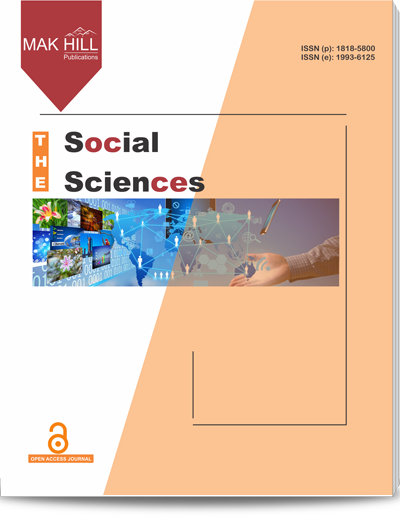
The Social Sciences
ISSN: Online 1993-6125ISSN: Print 1818-5800
Abstract
Education includes the formal and non-formal experiences that train, discipline and shape the cognitive, mental and physical potentials of the maturing person. Formal education is a purposeful, planned effort to impart specific competences or information. Formal education is a systematic process in which someone designs the educating experiences and it is considered a success when those being instructed acquire the competences, thoughts and information that those designing the experience seek to impart. It means education is a formal process that is supposed to transfer any kind of knowledge, skills, values and habits from one generation to the next generation. Non-formal education which is often called the “hidden curriculum” occurs in a spontaneous, unplanned way and involves people in learning during their daily life. Experiences that educate non-formally occur naturally; someone to stimulate specific thoughts or to impart specific skills does not design them. The following study analyses means of mastering Foreign languages attributed to both formal and non-formal education. The researchers consider that students’ linguistic club could be regarded as an important part of extracurricular domain. Based on the concept of polycultural education a students’ linguistic club being a part of non-formal education is supposed to carry out a number of certain functions within university educational area: linguistic; cognitive and educational. While organizing students’ linguistic club the researchers assume that beneficial combination of both formal and non-formal education is supposed to have a certain impact on students’ personal and professional development and their successful adaptation to polycultural reality. The study proves that students’ involvement in linguistic club activities encourage most participants to become successful partners of intercultural dialogue.
How to cite this article:
Alfia Ildusovna Gazizova, Marina Nailevna Siraeva and Galina Sergeevna Trofimova. Formal and Non-Formal Education Means of Mastering Foreign Language Skills.
DOI: https://doi.org/10.36478/sscience.2015.1324.1328
URL: https://www.makhillpublications.co/view-article/1818-5800/sscience.2015.1324.1328